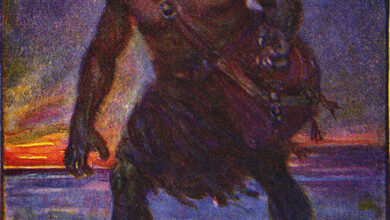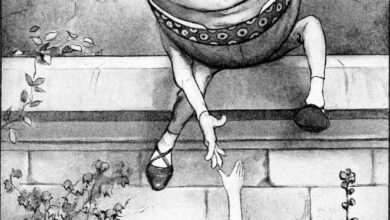
Journal by George Fox
George Fox, the founder of the Society of Friends, or “Friends of the Truth,” was born at Drayton, Leicestershire, in July, 1624, and died in London on January 13, 1691. His “Journal,” here epitomised, was published in 1694, after being revised by a committee under the superintendence of William Penn, and prefaced for the press by Thomas Ellwood, the Quaker. Fox rejected all outward shows of religion, and believed in an inward light and leading. He claimed to be divinely directed as he wandered, Bible in hand, through the country, denouncing church-worship, a paid ministry, religious “profession,” and advocating a spiritual affiliation with Christ as the only true religion. He was imprisoned often and long for “brawling” in churches and refusing to take oaths then required by law. Fox wrote in prison many books of religious exhortation, his style being tantalisingly involved. The one work that lives is the “Journal,” a quaintly egotistic record of unquestioning faith and unconquerable endurance in pursuit of a spiritual ideal through a rude age.
I.–His Youth and Divine Calling
I was born in the month called July, 1624, at Drayton-in-the-Clay, in Leicestershire. My father’s name was Christopher Fox; he was by profession a weaver, an honest man, and there was a seed of God in him. In my very young years I had a gravity and staidness of mind and spirit not usual in children. When I came to eleven years of age I knew pureness and righteousness. The Lord taught me to be faithful in all things, inwardly to God and outwardly to man, and to keep to “Yea” and “Nay” in all things.
Afterwards, as I grew up, I was put to a man, a shoemaker by trade, who dealt in wool, and was a grazier, and sold cattle, and a great deal went through my hands. I never wronged man or woman in all that time; for the Lord’s power was with me, and over me to preserve me. While I was in that service, it was common saying among people that knew me, “If George says ‘Verily,’ there is no altering him.”
At the command of God, on the ninth day of the seventh month, 1643, I left my relations, and broke off all familiarity or fellowship with old or young. I went to Barnet in the month called June, in 1644. Now, during the time that I was at Barnet a strong temptation to despair came upon me. Then I thought, because I had forsaken my relations, I had done amiss against them. I was about twenty years of age when these exercises came upon me, and I continued in that condition some years in great trouble. I went to many a priest to look for comfort, but found no comfort from them. Then the priest of Drayton, the town of my birth, whose name was Nathaniel Stephens, came often to me, and I went often to him. At that time he would applaud and speak highly of me to others, and what I said in discourse to him on the week days he would preach of on the first days, for which I did not like him. This priest afterwards became my great persecutor.
After this I went to another ancient priest at Mancetter, in Warwickshire, and reasoned with him about the ground of despair and temptations; but he was ignorant of my condition, he bade me take tobacco and sing psalms. Tobacco was a thing I did not love, and psalms I was not in a state to sing. Then I heard of a priest living about Tamworth, but I found him only like an empty, hollow cask. Later I went to another, one Mackam, a priest of high account. He would needs give me some physic, and I was to have been let blood. I thought them miserable comforters, and saw they were all as nothing to me, for they could not reach my condition. And this struck me, “that to be bred at Oxford or Cambridge was not enough to make a man fit to be a minister of Christ.” So neither these, nor any of the dissenting people, could I join with, but was a stranger to all, relying wholly upon the Lord Jesus Christ.
It was now opened in me “that God, who made the world, did not dwell in temples made with hands,” but in people’s hearts, and His people were His temple. During all this time I was never joined in profession of religion with any, being afraid both of professor and profane. For which reason I kept myself much a stranger, seeking heavenly wisdom and getting knowledge from the Lord.
When all my hopes in them were gone, then–oh, then–I heard a voice which said, “There is one, even Christ Jesus, that can speak to thy condition.” And when I heard it my heart did leap for joy, and the Lord stayed my desires upon himself.
II.–Preaching and Persecution
Then came people from far and near to see me, and I was made to speak and open things to them. And there was one Brown, who had great prophecies and sights upon his death-bed of me. He spoke only of what I should be made instrumental by the Lord to bring forth. And I had great openings and prophecies, and spoke of the things of God.
And many who heard me spread the fame thereof, and the Lord’s power got ground, and many were turned from the darkness to the light within the compass of these three years–1646, 1647, and 1648. Moreover, when the Lord sent me forth, he forbade me to “put off my hat” to any, high or low. And I was required to “thee” and “thou” all, men and women, without any respect to rich or poor, great or small. But, oh, the rage that then was in the priests, magistrates, professors, and people of all sorts; but especially in priests and professors! Oh, the scorn, the heat and fury that arose! Oh, the blows, punchings, beatings, and imprisonments that we underwent!
About this time I was sorely exercised in speaking and writing to judges and justices to do justly; in warning such as kept public-houses for entertainment that they should not let people have more drink than would do them good. In fairs also and in markets I was made to declare against their deceitful merchandise, cheating, and cozening; warning all to deal justly, to speak the truth, to let their yea be yea, and their nay be nay. Likewise I was made to warn masters and mistresses, fathers and mothers in private families, to take care that their children and servants might be trained up in the fear of the Lord; and that they themselves should be therein examples and patterns of sobriety and virtue.
But the earthly spirit of the priests wounded my life, and when I heard the bell toll to call people together to the steeple-house it struck at my life; for it was just like a market-bell to gather people together, that the priest might set forth his wares to sale.
III.–In Perils Oft
Now as I went towards Nottingham on a first-day, when I came on the top of a hill in sight of the town, I espied the great steeple-house, and the Lord said unto me, “Thou must go cry against yonder great idol, and against the worshippers therein.” When I came there all the people looked like fallow ground, the priest (like a great lump of earth) stood in his pulpit above. Now the Lord’s power was so mighty upon me that I could not hold, but was made to cry out.
As I spoke, the officers came and took me away, and put me into a nasty, stinking prison, the smell whereof got so into my nose and throat that it very much annoyed me. But that day the Lord’s power sounded so in their ears that they were amazed at the voice. At night they took me before the mayor, aldermen, and sheriffs of the town. They examined me at large, and I told them how the Lord had moved me to come. After some discourse between them and me, they sent me back to prison again; but some time after the head sheriff sent for me to his house. I lodged at the sheriff’s, and great meetings we had in his house. The Lord’s power was with this friendly sheriff, and wrought a mighty change in him; and accordingly he went into the market, and into several streets, and preached repentance to the people. Hereupon the magistrates grew very angry, and sent for me from the sheriff’s house, and committed me to the common prison. Now, after I was released from Nottingham gaol, where I had been kept prisoner for some time, I travelled as before in the work of the Lord.
And while I was at Mansfield-Woodhouse, I was moved to go to the steeple-house there, and declare the truth to the priest and people; but the people fell upon me in great rage, struck me down, and almost stifled and smothered me; and I was cruelly beaten and bruised by them with their hands, Bibles, and sticks. Then they haled me out, though I was hardly able to stand, and put me into the stocks, where I sat some hours. After some time they had me before the magistrate, who, seeing how evilly I had been used, after much threatening, set me at liberty. But the rude people stoned me out of the town for preaching the word.
IV.–A Willing Sufferer
While I was in the house of correction at Derby as a blasphemer, my relations came to see me, and being troubled for my imprisonment they went to the justices that cast me into prison, and desired to have me home with them, offering to be bound in one hundred pounds, and others of Derby with them in fifty pounds each, that I should come no more thither to declare against the priests. So I was had up before the justices, and because I would not consent that they or any should be bound for me–for I was innocent from any ill-behaviour, and had spoken the word of life and truth unto them–Justice Bennett rose up in a rage; and as I was kneeling down to pray to the Lord to forgive him, he ran upon me, and struck me with both his hands. Whereupon I was had again to the prison, and there kept until six months were expired.
Now the time of my commitment being nearly ended, the keeper of the house of correction was commanded to bring me before the commissioners and soldiers in the market-place, and there they offered me preferment, as they called it, asking me if I would take up arms for the commonwealth against Charles Stuart; but I told them I lived in the virtue of that life and power that took away the occasion of all wars, and was come into the covenant of peace which was before wars and strifes were.
I then passed through the country, clearing myself amongst the people; and some received me lovingly, and some slighted me. And some when I desired lodging and meat, and would pay for it, would not lodge me except I would go to the constable, which was the custom, they said, of all lodgers at inns, if strangers. I told them I should not go, for that custom was for suspicious persons, but I was an innocent man.
And I passed in the Lord’s power into Yorkshire, and came to Tickhill, where I was moved to go to the steeple-house. But when I began to speak they fell upon me, and the clerk took up his Bible and struck me in the face with it, so that it gushed out with blood, and I bled exceedingly in the steeple-house. Then the people got me out and beat me exceedingly, stoning me as they drew me along, so that I was besmeared all over with blood and dirt. Yet when I got upon my legs again I declared to them the word of life. Some moderate justices, hearing of it, came to hear and examine the business, and he that shed my blood was afraid of having his hand cut off for striking me in the church (as they called it), but I forgave him, and would not appear against him.
Then I went to Swarthmore to Judge Fell’s, and from there to Ulverstone, where the people heard me gladly, until Justice Sawrey–the first stirrer-up of cruel persecution in the North–incensed them against me, to hale, beat, and bruise me, and the rude multitude, some with staves and others with holly-bushes, beat me on the head, arms, and shoulders till they deprived me of sense. And my body and arms were yellow, black, and blue with the blows I received that day, and I was not able to bear the shaking of a horse without much pain. And Judge Fell, coming home, asked me to give him a relation of my persecution, but I made light of it–as he told his wife–as a man that had not been concerned, for, indeed, the Lord’s power healed me again.
V.–Encounters with Cromwell
When I came to Leicester I was carried up a prisoner by Captain Drury, one of the Protector’s life-guards, who brought me to London and lodged me at the Mermaid, over against the Mews at Charing Cross. And I was moved of the Lord to write a paper to Oliver Cromwell, wherein I declared against all violence, and that I was sent of God to bring the people from the causes of war and fighting to a peaceable gospel. After some time Captain Drury brought me before the Protector himself at Whitehall, and I spoke much to him of truth and religion, wherein he carried himself very moderately; and as I spoke he several times said it was very good and it was truth, and he wished me no more ill than he did his own soul.
When I went into Cornwall I was seized and brought to Launceston to be tried, and being settled in prison upon such a commitment that we were not likely to be soon released, we were put down into Doomsdale, a nasty, stinking place where they put murderers after they were condemned; and we were fain to stand all night, for we could not sit down, the place was so filthy. We sent a copy of our sufferings to the Protector, who sent down General Desborough to offer us liberty if we would go home and preach no more; but we could not promise him. At last he freely set us at liberty, and in Cornwall, Devonshire, Dorsetshire, and Somersetshire, the truth began to spread mightily.
After a little while Edward Pyot and I were moved to speak to Oliver Cromwell again concerning the sufferings of Friends, and we laid them before him, and directed him to the light of Christ. Afterwards we passed on through the counties to Wales, and by Manchester to Scotland; but the Scots, being a dark, carnal people, gave little heed, and hardly took notice of what was said.
And when I had returned to London I was moved to write again to Oliver Cromwell. There was a rumour about this time of making Cromwell king, whereupon I warned him against it, and he seemed to take well what I said to him, and thanked me. Taking boat to Kingston, and thence to Hampton Court, to speak with him about the sufferings of Friends, I met him riding into Hampton Court Park before I came to him. As he rode at the head of his life-guards, I felt a waft of death go forth against him, and he looked like a dead man. After I had warned him, as I was moved, he bid me come to his house. But when I came he was sick, so I passed away, and never saw him more.
After, I was imprisoned in Lancaster, but when I had been in gaol twenty weeks was released on King Charles being satisfied of my innocency. Then I was tried at Leicester and found guilty, but was set at liberty suddenly. And at Lancaster I was tried because when they tendered me the oaths of allegiance and supremacy I would not take any oath at all, and there I was a prisoner in the castle for Christ’s sake, but was never called to hear sentence given, but was removed by an order from the king and council. And afterwards I lay a year in Scarborough gaol, but was discharged by order of the king as a man of peaceable life.
And on the 2nd of the second month of the year 1674 I was brought to trial at Worcester, and during my imprisonment there I wrote several books for the press, and this imprisonment so much weakened me that I was long before I recovered my natural strength again, and in later years my body was never able to bear the closeness of cities long.



